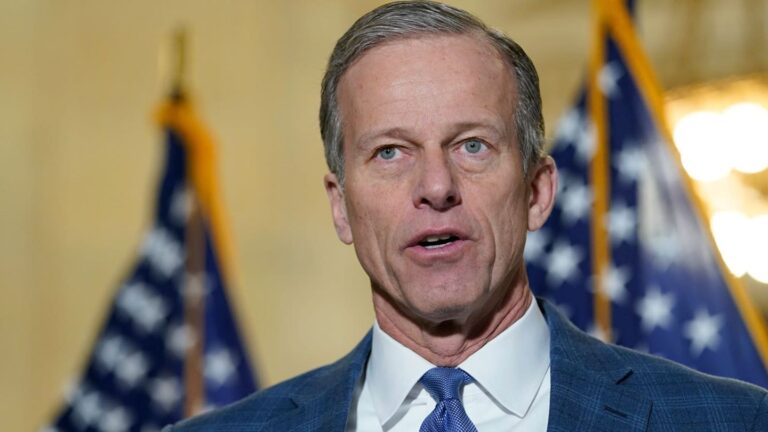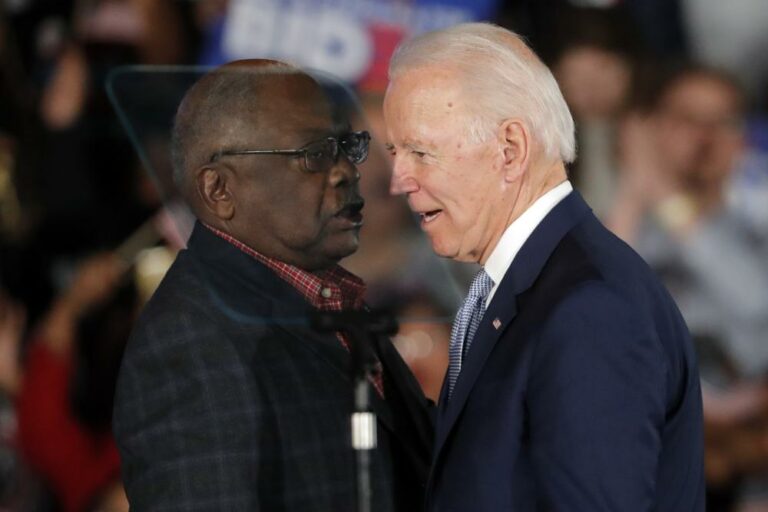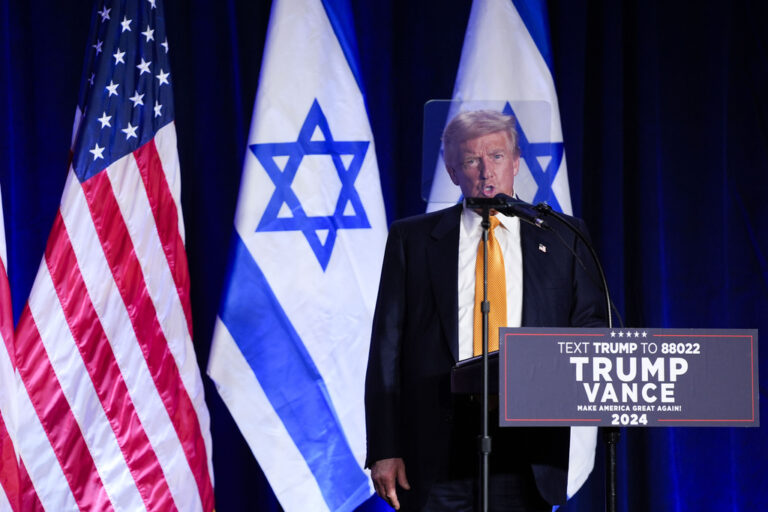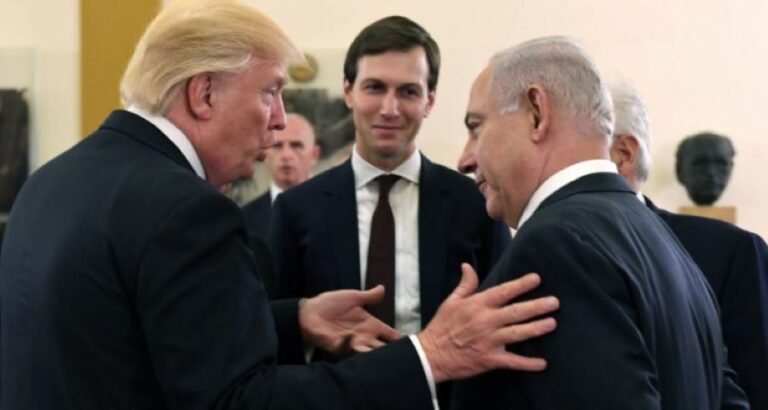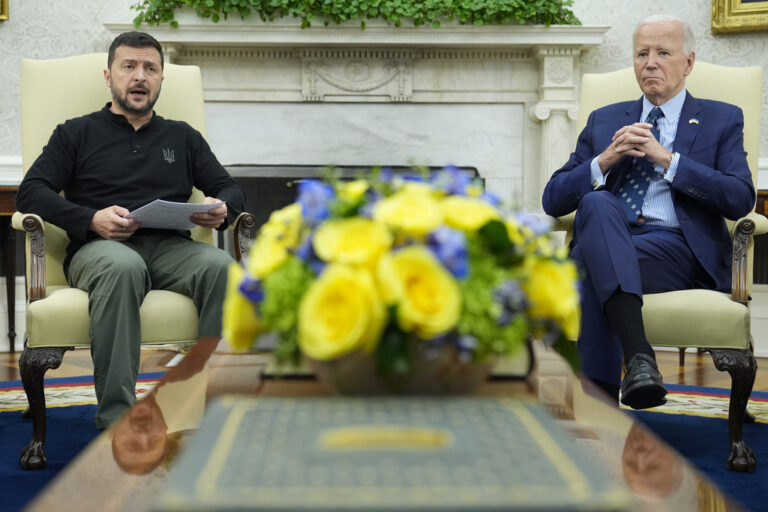 Donald Trump, humble?
Donald Trump, humble?
The billionaire GOP front-runner joked at the end of the second debate of the Republican presidential primaries that “Humble” ought to be his Secret Service code name, drawing chuckles from the audience and his rivals alike.
But the joke also came at the end of a debate in which Trump’s trademark bombast — still present, to be sure — was leavened with a more conciliatory tone and honest-to-goodness compliments for his rivals that continued for nearly 24 hours.
“I think everybody really did well. There was nobody that did poorly,” Trump said on CNN after stepping off the stage at the Ronald Reagan Presidential Library. “I was very impressed.”
There was more. On Thursday morning, the camera-loving former reality TV star told MSNBC that he felt he’d actually received too much air time. “It was a little bit unfair to a lot of other people, frankly,” he said. “A lot of them are friends of mine and they got no air time last night.”
Trump’s morning after couldn’t have been more different from his first debate, where he walked off the stage in a huff and launched a full-out verbal and Twitter assault against debate moderator and Fox News host Megyn Kelly, whose questions he deemed unfair. The spat culminated in him saying something inappropriate.
The kinder, gentler Trump is an unusual turn for a man whose larger-than-life bluster and refusal to play by the usual rules of politics catapulted him to the top of summertime polls.
He still got in plenty of his signature barbs on Wednesday night, especially early in the debate. Of Kentucky Sen. Rand Paul, he said, “I never attacked him on his look, and believe me, there’s plenty of subject matter right there.”
Yet Trump appeared to mellow as the debate entered its third hour. At times, he seemed to disappear from the stage as his rivals debated the intricacies of foreign policy, which, by his own admission, is not his strongest suit.
By the end of the marathon session, he and former Florida Gov. Jeb Bush, who had verbally attacked each other endlessly for weeks, were acting like old pals, with Trump patting Bush on the back and offering him a low-five after Bush said his own code name should be “Eveready.”
“It’s very high energy, Donald,” Bush deadpanned, a reference to Trump’s constant taunts that he’s a “low-energy guy.”
Was this a sign that Trump had simply grown bored during a debate that went on far longer than anyone expected? Or was the more conciliatory, less combative tone a sign that Trump is easing into his front-runner role and modulating his temper accordingly?
Trump in the past has boasted about being a counter-puncher, writing in his books that one of his governing philosophies is to hit back — and hard — if anyone goes after him. He was provoked often during the debate, but he demonstrated more restraint, refusing to swat back or doing so less vigorously.
Roger Stone, a close Trump friend who previously worked for his campaign and remains a loyal supporter, said he believes the change in tone was strategic and part of Trump’s evolution as a candidate.
“Look, I think it has dawned on him that he could be the nominee,” Stone said. “What started as an exploration — not a lark, but an exploration — has become viable. And it’s not lost on him that if he were the nominee, he would need the support of all these other candidates. And you can’t win that by constantly attacking everybody.”
Stone said it made particular sense for Trump to play nice with former Hewlett-Packard CEO Carly Fiorina and retired neurosurgeon Ben Carson, two fellow political outsiders. Trump may have to win over their supporters, Stone argued, if he wants to expand his base and win the nomination.
Trump campaign manager Corey Lewandowski declined to discuss internal debate strategy, but pushed back against the idea that Trump’s approach had changed.
“I think what a lot of people anticipated was an individual on stage who was going to go after people. But that’s not what he does,” said Lewandowski, who noted that Trump’s humor stood out.
“He has a side to him that a lot of people, maybe they don’t see,” he said.
Still, Trump’s sojourn in kinder pastures had evaporated by Thursday night, when he set foot in a sweaty gymnasium in Rochester, New Hampshire, for a town hall event. Soon he was back to bashing his opponents as “so-called candidates.” He also went after Fiorina’s corporate record after a questioner mentioned her tenure at Lucent Technologies.
“Everyone’s saying she made a good speech yesterday. I don’t know, I don’t get it,” said Trump, later adding: “She did a terrible job at Lucent, she did a terrible, terrible, terrible job at Hewlett-Packard. … I just don’t see how she can get over that hurdle.”
As for Bush, Trump noted, “There are other guys that are actually ahead of him in the polls, by a lot. … I don’t think he’s doing to do too well in New Hampshire or Iowa or anywhere else.”
Before the event, Stone said he’d learned years ago never to try to predict Trump.
“I mean, Trump’s style is not fundamentally going to change,” he said. “He is what he is.”
(AP)


